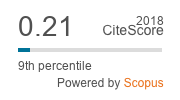Questionário De Percepção Dos Pais - Q.P.P.
Resumen
Com base na literatura psicológica e sociológica pertinente, foi construído um instrumento de 43 itens (QPP) para avaliar a percepção que os filhos possuem de seus pais. A validação fatorial foi efetuada com uma amostra de 574 estudantes de 2? grau e superior. Quatro fatores apareceram na figura do pai: companheiro amigo, disciplina punitiva, disciplina lassa, centralização no filho; quatro fatores surgiram também na figura da mãe: intimidade amiga, superproteção, controle lasso, punição. Esses quatro fatores em ambas as figuras parentais se agrupam em dois fatores de segunda ordem: amore disciplina. Todos eles possuem índices satisfatórios de precisão. São apresentados igualmente o instrumento e o seu modo de utilização.
Descargas
Citas
Alegre.
BONAMI, M. (1 967). Etude diiférentielle surla correspondence entre Ias images père, de Ia mère et de Dieu. Université Catholique de Louvain, Dissertação de
mestrado, Louvain.
FRENKEL-BRUNSWICK, E. (1955). Differential patterns of social outlook and
personality in family and children. Em M. MEAD& M. WOLFENSTEIN, (Eds.),
Childhood in contemporary cultures. Chicago: University of Chicago Press.
FREUD, S. (1 905). Three essays on sexual theory. Standard Edition, VII. Londres:
Hogarth.
FREUD, S. (1950). Totem and taboo. Nova Iorque: W. W. Norton.
GUILFORD, J. P. & FRUCHTER, B. (1973). Fundamental statistics in psychology
and education. Nova Iorque: MacGraw-Hill.
HANDEL, G. (1 967). Analysis of correlative meaning: The TAT in the study of families, Em G. HANDEL (Ed.), The psychosocial interior of the family: A
sourcebook for the study of whole families. Chicago, Illinois: Aldine.
HARLOW, H. F. (1958). The nature of love. American Psychologist, 13, 673-685.
HARLOW, H. F. (1959). Love in infant monkeys. Scientific American, 200, 68-74.
HARLOW, H. F. & HARLOW, M. K. (1962). Social deprivation in monkeys.Scientific
American, 207, 136-146.
HARLOW, H. F., HARLOW, M. K„ & HANSEN, E. W. (1963). The maternal
affectional system of rhesus monkeys. Em H. L. Rheingold (Ed.), Maternal
behavior in mammals. Nova Iorque: Wiley.
HARLOW, H. F..& HARLOW, M. K. (1965). The affectional system. Em A. M.
SCHRIER, H. F. Harlow & F. Stollnitz (Eds.), Behavior of nonhuman primates,
Vol. II. Nova Iorque: Academic Press.
HARLOW, M. K. & HARLOW, H. F. (1 966). Affection in primates. Discovery, 17.
HARMAN, H. H. (1967). Modem factoranalysis. Chicago: The Universityof Chicago
Press.
KEPHART, W. M. (1 961). The family, society. andthe individual. Boston: Houghton
Mifflin.
LÁZARO, V. A. (1 979). Percepção das atitudes dos pais por parte de adolescentes
delinqüentes e não delinqüentes. Tese de mestrado. Pontifícia Universidade
Católica do Rio Grande do Sul, Porto Alegre.
MALINOWSKl, B. (1967). La sexualité etsa répression dans les sociétésprimitives.
Paris: Petite Bibliothèque Payot.
MASLOW, A. H. (1954). Motivation and personality. Nova Iorque: Harper.
MASLOW, A. H. (1962). Toward a psychology of being. Princeton, N. J.: Nostran.
MASLOW, A. H. (1971) 777e further reaches of human nature. Nova Iorque: Viking Press.
PARSONS, T. (1 967). Sociológica! theory andmodern society. Nova Iorque: Press.
PASQUALI, L. (1 970). The parental images andthe concept of God. Formulation an instrüment of measure in the psychology of religion. Tese de doutorado,
Université Catholique de Louvain, Louvain.
PASQUALI, L. (1979). Concepção de pais: um instrumento fatorial. Psicologia:
Ciência e Profissão, O, 137-214.
PASQUALI, L, ALVES DE ARAÚJO, J. M.; & COSTA, M.T.P.M. (1 na opinião dos filhos. Validação de um instrumento de medida de atitudes.
Brasília: Relatório ao CNPq.
PASQUALI, L, ALVES DE ARAÚJO, J. M. (1 978). O pai e a mãe na filhos. Vol. II: Os pais reais. Brasília: Relatório ao CNPq.
PATTYN, M. R., & CUSTERS, A. (1 964). Het vadersymbool en het moedersymbool
in de Godsvootstelling. Dissertação de mestrado, Université Catholique de
Louvain, Louvain.
ROGERS, C. R. (1971). A theory of personality. Em S. R. MADDI (Ed.), on personality. A comparative approach. Boston: Little, Brown and Co.
ROGERS, C. R., & KINGET, G. M. (1966). Psychothérapie et relations humaines.
Théorie et pratique de Ia thérapie non-directive. Louvain: Nauwelaerts.
ROE, A., & SIEGELMAN, M. A. (1 963). A parent-child relations questionnaire. Development, 34, 355-369.
SCHAEFER, E. S. (1 965). A configurational analysis of Children's Reports of Parent
Behavior. Journal of Consulting Psychology, 29, 552-557.
SIEGELMAN, M. (1965). Evaluation of Bronfenbrenner's questionnaire forchildren
concerning parent behavior. Child Development, 36, 163-174.
TAMAYO, A. (1970). Structure psychologique des images parentales et leur
symbolisme religieux. Etude interculturelle. Tese de doutorado, Université
Catholique de Louvain , Louvain.
TAMAYO, A. (1985). Escala fatorial de representação parental (EFARP). Educação Seleção, 11, 97-103.
VERGOTE, A., TAMAYO, A., PASQUALI, L, BONAMI, M., CUSTERS, M. R. (1969). Concept of God and parental images. Journal for the Scientific
Study of Religion, 8 (1), 79-87.
VERGOTE, A. & TAMAYO, A. (1 980). The parental figures and the representation God. A psychological and cross-cultural study. The Hague: Mouton Publishers.
WHITING, B. B. (Ed.) (1963). Six cultures: Studies in child rearing. Nova Iorque:
Wiley.
ZUCKERMAN, M., RIBBARCK, B. B., MONASHKIN, I., & NORTON, Normative data and factor analysis of the Parental Attitude Research Instrument.
Journal of Consulting Psychology, 22, 1 65-1 71.



